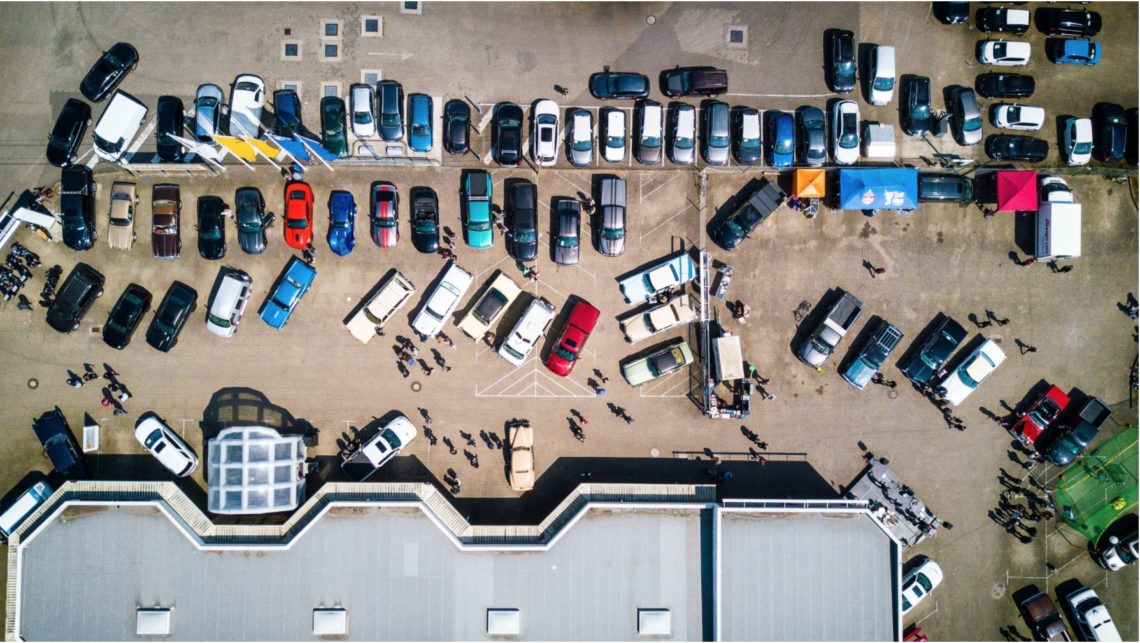
As the world grapples with the Covid-19 epidemic, the amount of traffic on significant highways has reduced considerably, and most shopping is done at nearby stores to avoid flouting lockdown rules and reduce the risk of exposure.
This situation, in turn, has seen a drop in car accidents taking place on the highways and an increase in accidents happening at private properties like parking lots. Parking lot accidents can prove to be challenging to resolve and may also involve personal injury claims depending on who is at fault.
Proving liability in a parking lot accident
Proving liability is the means through which insurance companies and courts determine who is at fault for the accident and, thus, who gets to pay for the damages and injuries. You have probably heard of the perpetuated myth that parking lot accidents are usually shared 50/50. While in some cases this could apply, it is not a rule nor a common occurrence, so you should be vigilant to ensure ignorance does not leave you burdened with costs you could have avoided.
Liability in parking lots is primarily proved depending on who has the right of way. The general rule is that vehicles driving along the through lanes have the right of way, so cars driving from paring lanes must yield to them. A driver exiting the parking lane who hits a vehicle on the through road will be responsible for the accident. There is an exception to this rule, however, when there is a STOP or YIELD sign on the throughway giving way to the cars exiting the parking lanes. If a driver ignores these signs, then he or she is liable for the accident even if the vehicle was on the throughway.
Negligence is also another factor used to determine who was at fault. It is a legal principle that presumes that all drivers exercise caution and obey traffic laws when driving. Negligent behavior includes violation of traffic laws, driving under the influence of drugs or alcohol, and recklessness, which will result in you being found at fault even in cases where you had the right of way. Actions that put other drivers and road users at risk also count as negligence.
Common types of parking lot accidents and who is at fault
With the above understanding, here is a look at common accidents at parking lots and the party that is usually at fault.
1. Cars backing out of parking space colliding with those on the driving lane
Drivers exiting their parking space have to give the right of way to people and cars before backing out. As already pointed out, the cars on the through lane have the right of way unless there is a sign directing otherwise. In case of an accident, the driver from the parking space is at fault.
2. The collision of two cars from different parking spaces
It is common for two cars on opposite sides of the parking lane to collide with each other if backing out at the same time. Both drivers have the same level of responsibility to ensure the road is clear before barking out. Where it is possible to determine which driver was the first to back out, the second driver is held at fault. If it is not possible, both drivers get assigned a percentage of the liability.
3. Driver crashing into a parked car
If a car is parked legally within assigned spaces, the driver that collides with it is at fault. The only time a parked vehicle may be held partly liable is if it was on the borderlines or the door was open intruding into other road users’ way.
4. Collision on a parking spot
It is also possible for two drivers targeting the same parking spot to collide into each other. When this happens, several things are determined, including which driver had the right of way, how far each car was from the parking spot, points of impact, and in which direction was each car turning to.
When the property owner is at fault
In other instances, the property owner is at fault, creating third party liability. However, the burden of a driver to prove negligence on the part of the owner covering acts of commission or omission created the risk of accidents. Such acts include;
- Poor lighting hindering visibility
- Lack of proper signage to direct who has the right of way
- Uneven roads and slippery surfaces which may affect car handling and result in accidents
- Unclear or absent parking lines which fail to indicate the legal parking space for each car
- Reckless valets who may cause damage to patrons and other users’ cars and injure people.
The challenging aspects around parking lots accidents mean an experienced attorney’s help will come in handy when filing claims or defending yourself. Should you be in this situation, call us today and let us work a strategy for your case.

